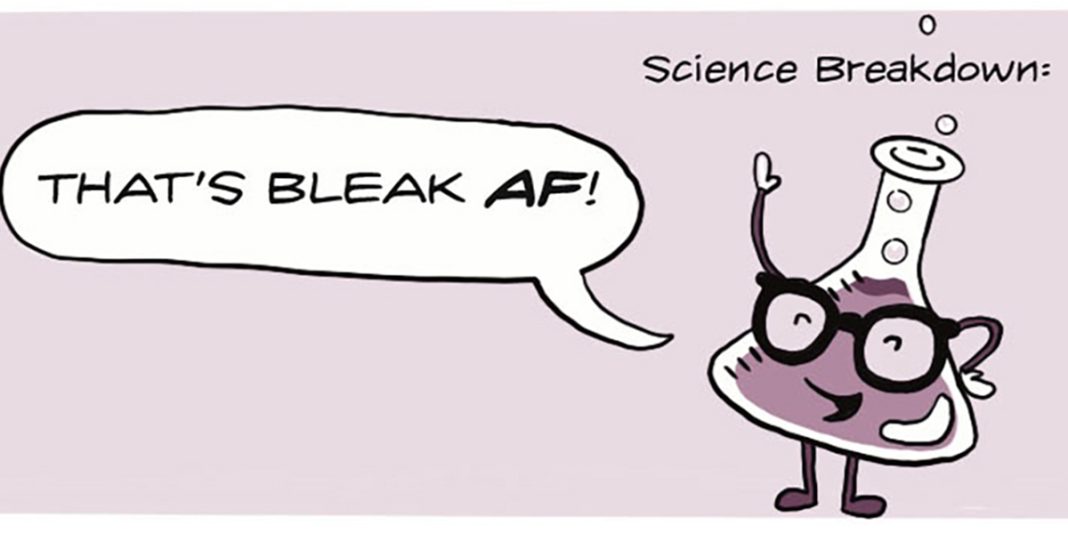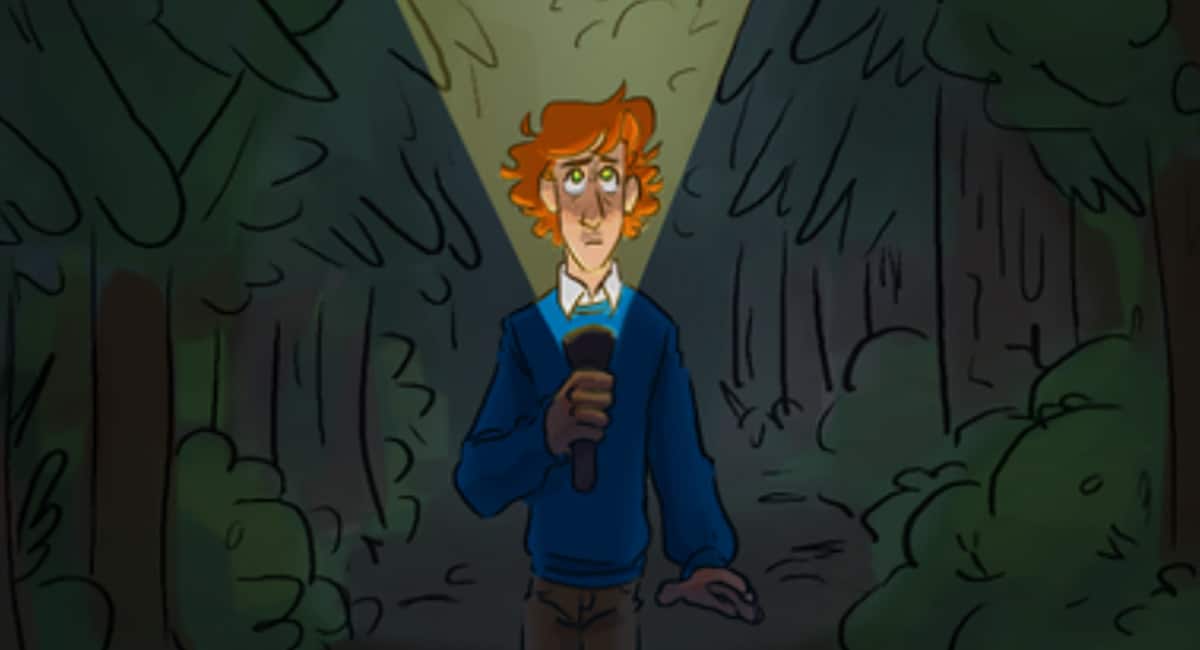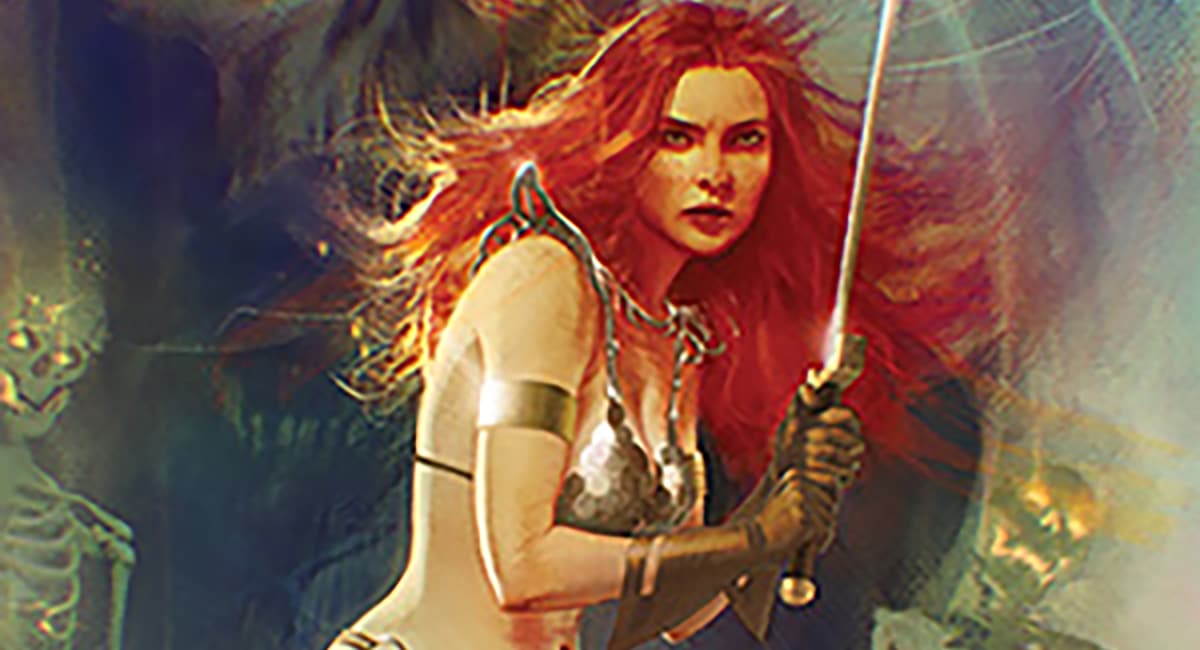Dating has certainly changed. It was already moving toward online and app-based matchups, but after COVID, these platforms became the norm for connecting with potential partners in love and hookups. Paula Rogers‘ web series Blind Data hits the mark several times when it comes to the dating app world and how those algorithms, while connecting you with many, often make you feel even more isolated.
After a brief hiatus, the comic’s next installment is now available to read online. ART, a double issue, dives right into how those algorithms attempt to approximate “attractiveness.”
Rogers chatted with us about the series.
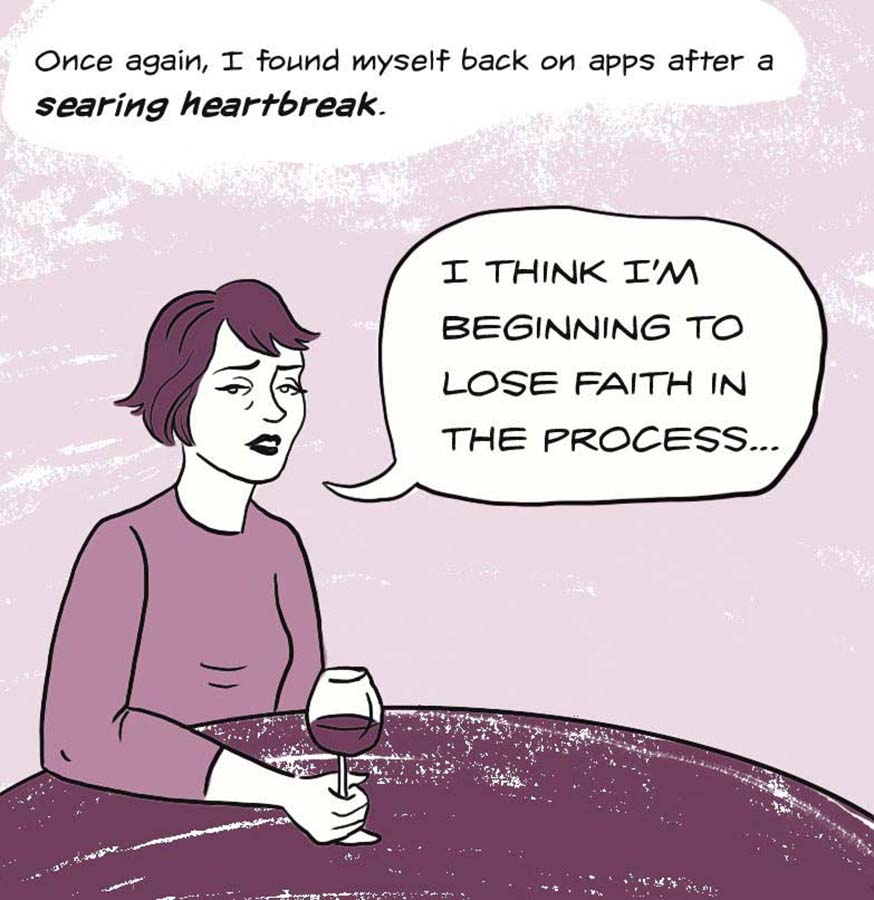
Deanna Destito: What sparked your need to create Blind Data?
Rogers: Well, I found myself ranting to strangers about how much I hated dating apps, and I figured that was probably a signal that I needed an outlet. I’m joking, but also it’s true. I honestly did start complaining about the apps on my online dates, testing my theories, and I found that people were very receptive to talking about how much the experience truly sucks. But there was always this resignation at the end of a gripe session–well, it’s the only way to meet someone!
That scared me–what a truly horrifying self-fulfilling prophecy! First of all, I remember life before dating apps and many people have gotten together without them, obviously! But more importantly, apps are a consumer product, and yet almost everyone using them hates them and wants off the miserable merry-go-round. TikTok and Instagram and podcasts and open mic nights are FULL of online dating horror stories. But we all just keep giving them our time and money without even expecting any improvements. Why?!
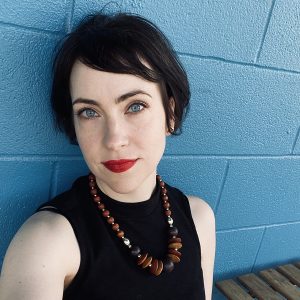
I could write a whole essay just about this, but I think the silence on the pain of these experiences is because it is so vulnerable and so shameful to deal with any kind of romantic rejection. Our society does not hold a lot of space for people to be open about that pain. It’s embarrassing! So we have pressure to just shrug it off, not take online dating seriously, not “let” it hurt us even while we’re being cut to pieces inside by these interactions.
I wanted to push back by showing how even first dates that I went on years ago, with people I never saw again, still deeply affect me. And these are not the #datinghorrorstories, but believe me, I experienced some truly harrowing moments. I wanted to show that every single date is a meaningful, vulnerable moment in our lives because it is emotionally charged. I wanted to argue against the idea that we’re just data to be shuffled around like Legos by the algorithms. The shuffling hurts us. The dates leave a mark. We should be treated with more care by the platforms we support with our time and money.
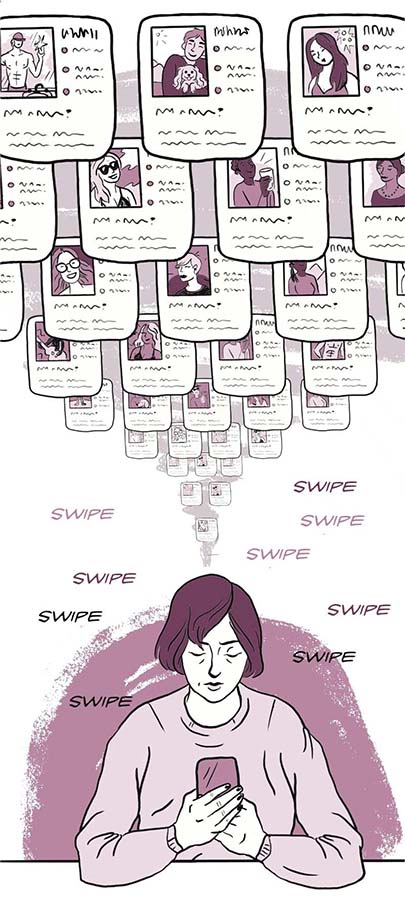
Destito: How do you feel like online dating has changed how we interact as humans, particularly with romance compared to in-person connecting?
Rogers: I don’t have very sunny thoughts on this subject, to be honest! I don’t want to bash the technology outright. I think dating apps have the potential to make connections in very generative and humane ways. I just have yet to see that happening, and to me, the problem is less about the technology itself than it is about expecting to foster community, empathy, and presence on a corporate platform whose business model depends on user churn. That’s a deeply misaligned set of objectives, there!
My fear is that online dating has degraded our respect for ourselves and for the people we date because it forces us to swipe through people at such volumes that it can’t help but become numbing and dehumanizing. There are studies that show that our brains truly cannot manage this level of choices! So, in the face of that overwhelming sea of seemingly endless options, we start to flail and make bad choices about who we date, how we treat them, how we let ourselves be treated, and the whole pursuit becomes corrupted by the methodology.
My concern is that we are trying to contort our emotional needs to fit an app when it should be the other way around–especially since these apps are making some people very rich, and especially because I don’t actually believe we can fundamentally change what we need to feel emotionally fulfilled in a relationship on a broad, human level. This is why I think so many people resonate with Blind Data even though these are very specific stories about my own life–this app experience feels bad. It just simply feels bad.
Destito: What does this next installment have in store?
Rogers: ART is the comic that I’ve been most nervous to release. It touches on a subject that’s very painful for, I’d venture, most people to talk about–physical attractiveness. The story touches on the horrible experience of not being seen as “attractive enough” in a lot of different ways–from that instant rejection when you meet an online date IRL and there’s immediately and obviously no chemistry, to the way that the apps themselves use code to approximate “attractiveness” and rank some users higher than others.
I ended up doing a ton of research for this comic, looking at studies from both data scientists and the apps themselves, like OKCupid and Tinder (before they hid their methodologies behind closed doors). It was weirdly validating to see what I had experienced right there in the stats–according to how most apps rate users, collaborative filtering, my romantic value really IS pretty darn low. This explained the whiplash of feeling like a successful, well-liked, attractive woman IRL, and some kind of desperate troll who should thank my lucky stars every time someone threw me an uncapitalized “hey u” in swiping-land.
I found that when dating apps use collaborative filtering on people, they are basically codifying racism, sexism, ageism, ableism…the list goes on. Because it’s not just that the algorithm reflects these toxic impulses that already exist in users–it actually amplifies those biases by filtering which profiles are even seen based on data that comes from, essentially, a series of snap judgments by strangers.
I hope that showing people just how lazy and toxic these algorithms can be will help depersonalize the very real pain that comes from being banished to the bottom tiers of an app. Then people can decide for themselves if they want to be treated that way.
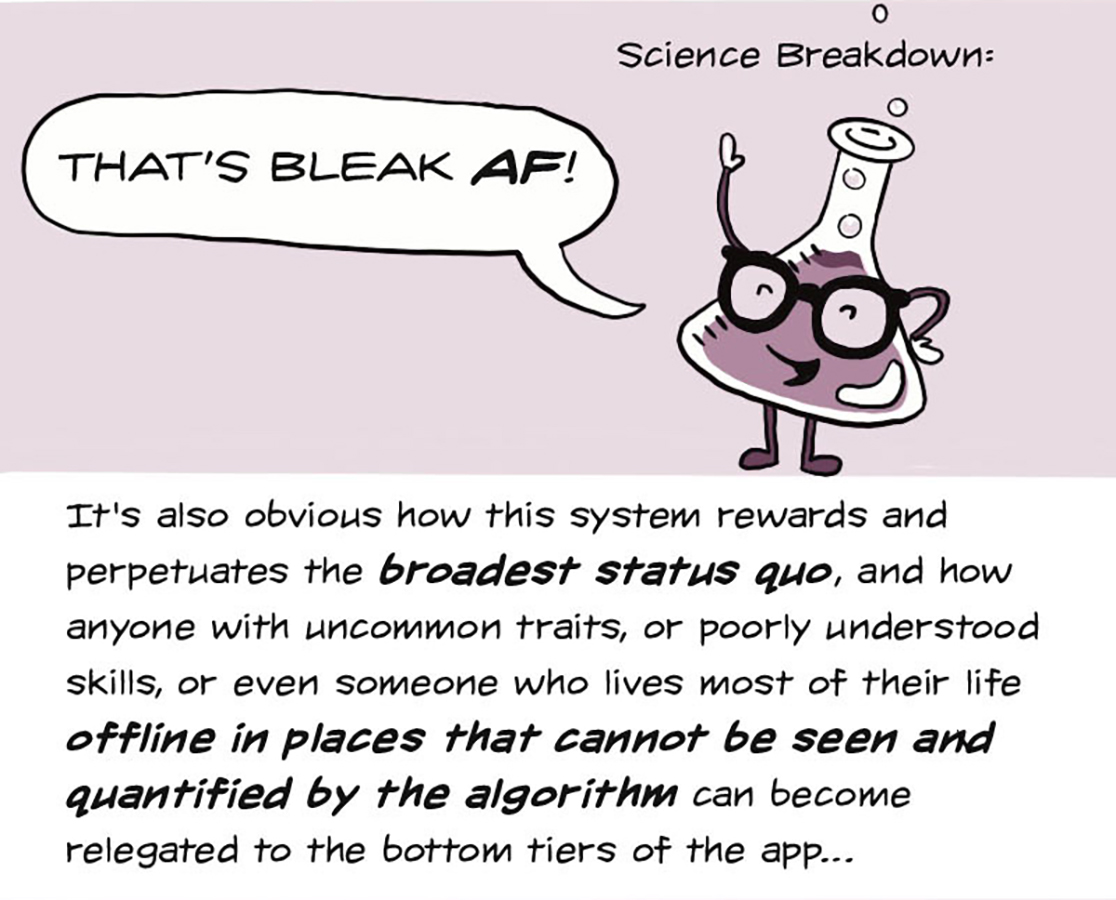
Destito: Have any past dates read the comic and recognized themselves in the panels?
Rogers: Actually, yes! So the weird thing about the “only first dates” concept is that I’m not in touch with most of the men whom I feature in the comic because I never really did get to know them–with a couple exceptions. One of those exception stories is yet to be released. The other one is CACTUS EMOJI.
That comic ends with the guy reaching out to me months after we parted ways just to say hi and then things just kinda fizzle out after a few texts, as so often happens in digital exchanges. But years later, actually right around the time I had finished drawing CACTUS EMOJI, we got back in touch in earnest (as friends). It was funny timing. So I let him know that I was planning to release the comic soon and asked if he’d like to read it.
To his credit, he said yes, and he read it and loved it. He felt it was an accurate (and accurately painful) retelling of what went down, and he had no suggestions or requests for changes–believe me, I asked! In all honesty, I’ve had a lot of anxious moments wondering if I’m remembering things fairly–like I said, these are mostly stories from one or two nights in my life several years ago. We all tell ourselves narratives that make us feel better about painful events. So to have the validation from him that I got it right really gave me the courage to keep going with the comic and to trust my own self-reflection. Since then, this person has been one of the biggest supporters of the comic, and I feel so fortunate to have a friend that is so self-aware and generous about being one of the cat-men in my project! See? It’s not all sad and bad!
To read Blind Data, begin here.


